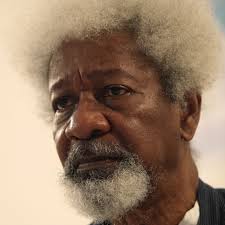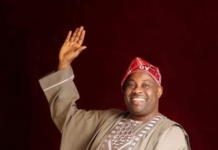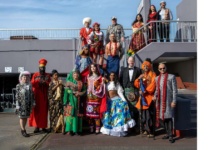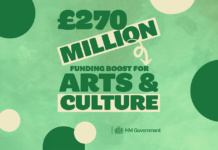
The world of books and those who spend their lives and resources comes to berth soon as Port Harcourt, Nigeria celebrates the concept and the flair, the intellect and the creativity, the passions and the joys, the grouse and the lack that the world of books may occasion in all of humanity.
The city, also the state capital, will be hosting the world of stakeholders in the writing industry courtesy of Mr. Rotimi Amaechi, the Executive Governor of Rivers State of Nigeria from the 24th April, 2014.
Africa enjoys centre stage at this event as African Writers are represented by a collegiate nomination of a panel to show case what Africa can not only do but also review African achievements in world of letters and postulate into the future of African writings on the world stage.
Starting from the London Book Fair, which closed on Thursday, 10 April, 2014, where Governor Amaechi, Prof. Wole Soyinka (Nobel laureate) and Prof. AbdulRasheed Na’Allah all attended and visited issues of ensuring the proper positioning of education in Africa, particularly Nigeria, and the attendant nuances which stunt the propagation of the creative exercise of intelligence and education in societies. The Rainbow Book Club, very ably, facilitated the sweetest, last gasp just before the closure.
Then a panel of discussants, among whom were Lola Shoneyin, Dr. Kole Odutola, Hassan Aliyu, and Ade Solanke elucidated readership issues and ‘availability’ of books.
But hear Margaret Busby’s account of the ‘how’ the 39 African writers were selected at the London Book Fair which closed last week.
As Port Harcourt prepares to become the World Book Capital 2014, Margaret Busby describes how a panel of judges selected 39 African writers to represent the continent
Among the first events of this week’s London Book Fair (LBF) was a breakfast press conference to reveal an eagerly anticipated rollcall of 39 writers under the age of 40 from Africa and its diaspora. This afternoon, at a second briefing in the presence of Nigerian Nobel laureate Wole Soyinka, the countdown will begin to the start of Port Harcourt’s tenure as World Book Capital 2014.
Africa39 is the latest phase of the Hay festival’s initiative of working with the World Book capitals – Bogotá in 2007 and Beirut in 2010 – to highlight the local talents and languages with the potential to define the literature of the future. As one of three judges, including Osonye Tess Onwueme and Elechi Amadi, who are tasked with making the final selection, I regard the list as a sort of snapshot of what is to come. But equally pertinent is how it came about.
The selection process began last year, with Caine prizewinning author and founder of the Kenyan literary journal Kwani?, Binyavanga Wainaina, consulting publishers, agents and critics to identify hundreds of writers from which to choose 39. Apart from the age criterion, contenders had to have published at least one work of fiction, and to show stand-out potential for development.
Importantly, Wainaina guaranteed that attention would be given to writers working in African languages, and that fiction in its broadest sense would be considered. “Wild, weird, explorers of the imagination” were encouraged to participate, as were those who use pseudonyms for safety and creative freedom. More than 20-plus years after the publication of my pioneering anthology, Daughters of Africa, I was delighted to see that more than half of the writers were women.
We judges were spoiled for choice: the 100 nominees embraced every kind of literary writing, from erotica to romance to science fiction to thrillers. We reduced it by half, then edged happily towards the final list. Except that it is not, by definition, so “final”. We are simply saying: “Here are 39 of the best … ”
Africa39 is not an exercise constrained by labels, fashion and preconceived rules about genres, nor by what constitutes African writing. Twenty countries are represented by work created in a variety of African and European languages – Kiswahili, Igbo and Lingala as well as English, French, Spanish and Portuguese. Understandably, with the continuing debate about the validity of the “African writer” category, there are those who feel uncomfortable about participating in this venture (indeed, some have chosen to opt out).
I have done my fair share of judging prizes and it is never a task to be taken lightly – it’s a responsibility and a privilege to be in a position to affect someone’s career. Perhaps the best thing about Africa39 is that there is no single winner: it is a unique opportunity to showcase, celebrate and encourage a new generation of fiction writers, encompassing names that have already drawn international acclaim and others who are beneath the radar. The group is neither exclusive nor discrete, rather it is exemplary of exciting literature with African regional connections.
The countdown to an action-packed launch of Port Harcourt World Book Capital 2014 begins with a briefing at LBF at 4pm today (Thursday) introduced by Wole Soyinka. Soyinka will also write a preface to an Africa39 anthology, which will be published by Bloomsbury in October.








